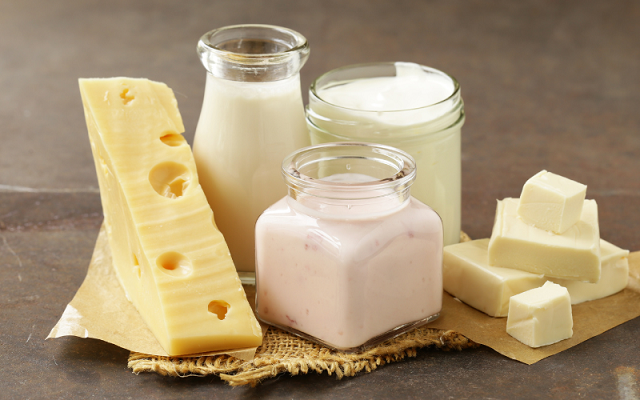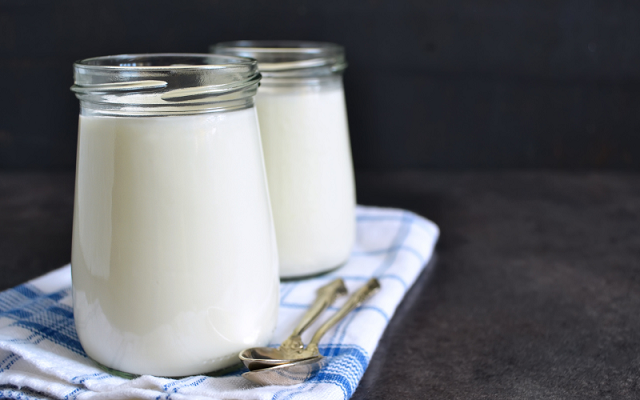Since centuries ago, the lactic ferments prove to have a crucial role in the production of fermented dairy products, such as yogurt and cheese.
Very beneficial for the body, the usefulness of these microorganisms is not limited to the kitchen and goes far beyond that. From health, through agriculture, to cosmetics, lactic ferments have secured their place in various fields. In our article, we will detail the different facets of lactic ferments, diving into their fascinating worlds and highlighting the lactic fermentation process, how they work, and their various benefits for our body.
What is lactic ferment?
Lactic ferments are primarily bacteria, which are necessary during the process of lactic fermentation. This process transforms the sugar present in milk, which is called lactose, into lactic acid. This is what gives fermented dairy products their texture, taste, and characteristic properties.
These living microorganisms are widely used in the production of dairy products such as yogurt, kefir, and certain types of cheese. Additionally, they are full of health benefits, such as their contribution to the balance of intestinal flora. Some of these lactic ferments are considered probiotics and can have positive effects on food digestion, immunity, and even mental health.
The process of lactic fermentation explained
As we have mentioned previously, the lactic fermentation process is a process that transforms lactose into lactic acid in the absence of oxygen. Here are the key steps of the lactic fermentation process:
- Lactic microorganisms are generally introduced into milk. They can be added in the form of pure cultures or be naturally present in the environment, such as strains of Lactobacillus bacteria that are found in many fermented foods, such as yogurt, sauerkraut, and kimchi.
- Lactic bacteria use enzymes to break down lactose into glucose and galactose.
- These bacteria then ferment glucose and galactose to produce lactic acid. This acidification gives the products their firm texture and characteristic taste.
- Other compounds can be produced during the fermentation process, such as organic acids, aromas, and volatile compounds. These compounds contribute to the complexity of the taste and texture of the final product.
- After the fermentation phase, the product can undergo a maturation period that allows the development of the desired flavors and textures.
This process is used in the food industry to produce fermented dairy products and also in other fields such as the production of certain medications, food preservation, and even in wastewater treatment.
How to choose your lactic ferments for making yogurt?
Knowing how to choose the right strains of lactic ferments to make your own homemade yogurt is essential to ensure a quality product and successful fermentation. Here are some tips:
Opt for high-quality lactic cultures: Make sure to buy cultures specifically designed for yogurt making; the most commonly used ones are generally:
- Lactobacillus bulgaricus : It is an essential ferment to give yogurt its characteristic texture and taste. It is also particularly effective at fermenting lactose and producing lactic acid.
- Streptococcus thermophilus This microorganism works in synergy with Lactobacillus bulgaricus to transform milk into yogurt. It helps to give the yogurt a firm texture.
Choose probiotic cultures: If you aim for optimal intestinal comfort with your yogurts, choose cultures containing probiotic strains, such as:
- Lactobacillus acidophilus : This lactic culture is often added for its probiotic properties, which are beneficial for intestinal health.
- Bifidobacterium lactis : It is another probiotic commonly used in yogurts for its positive effects on gut health.
Check the freshness of the lactic cultures: Make sure that the cultures you buy are fresh and not expired. Their freshness is important to ensure their viability and effectiveness during fermentation.
Follow the advice for using the starters: It is necessary to respect and read the instructions provided with the lactic cultures to know the specific recommendations regarding:
- The choice of milk, and preferably it would be better if it is whole unpasteurized milk, otherwise pasteurized milk.
- The fermentation temperature is generally around 40-45°C. It is preferable to use a yogurt maker to maintain a constant temperature during fermentation.
- The fermentation time is generally between 4 to 8 hours. It should be noted that the higher the temperature, the faster the fermentation.
Choose crops suited to your dietary needs: If you have specific dietary preferences, such as lactose-free yogurts or vegan yogurts, you can choose the bio ferments for plant-based stirred yogurt which are specifically adapted for vegan people or those who are lactose intolerant (plant-based milk does not ferment in the same way as animal milk).
By following these tips, you will be able to choose the right lactic ferments to make delicious and healthy homemade yogurts, tailored to your preferences and personal needs.
Practical Guide to Making Your Own Vegan Yogurt at Home
If you want to know how to make vegan yogurt at home, you can check out our article. It seems like your message is incomplete. Could you please provide the full text you would like translated from French to English?How to make homemade yogurt with a yogurt maker ?It seems like your message is empty. Could you please provide the text you would like translated from French to English? which explains to you in detail the super easy-to-follow recipe and its different steps to make yogurt at home.
Beyond yogurt: exploring other uses
Beyond yogurt preparation, lactic ferments offer a wide and impressive array of diverse uses in other fields. Here is a brief overview:
- Food fermentation: Lactic ferments are used in the production of several other fermented foods, such as sauerkraut, kimchi, sourdough bread, pickles... These lactic ferments promote the preservation of food, the improvement of their flavor and texture, and their nutritional properties.
- Probiotic supplements: There are dietary supplements containing lactic ferments, commonly known as probiotics. Available in the form of capsules or tablets, these products aim to promote intestinal balance, strengthen the intestinal mucosa, and relieve digestive disorders by regulating intestinal bacteria.
- Pharmaceutical industry: Lactic ferments are widely used in the pharmaceutical industry as fermentation agents in the production of certain medications and pharmaceutical supplements.
- Cosmetics: They are also used in the cosmetic industry for their beneficial effects on the skin. These lactic ferments are present in certain skincare products such as moisturizers, cleansing lotions, and masks, to help maintain the balance of the skin microbiome. They can also strengthen the natural skin barrier, helping to protect the skin against external aggressions such as pollution and UV rays.
- Agriculture: Lactic ferments are used in agriculture for the production of beneficial bacteria for the soil. When applied to crops or mixed into the soil, these ferments can promote the decomposition of organic matter, increase the microbial biodiversity of the soil, and stimulate plant growth, which can enhance agricultural yields and reduce dependence on agricultural chemicals.
Lactic ferments: health benefits
Lactic ferments offer a wide range of health benefits. Here are some of their advantages:
- Improvement of gut health: You already know that lactic ferments act as probiotics. Studies have shown that these probiotics, particularly the Lactobacillus and Bifidobacterium strains, help maintain a healthy balance of intestinal flora by inhibiting the growth of pathogenic bacteria and promoting the proliferation of beneficial bacteria. This can help reduce gastrointestinal issues such as bloating, constipation, or even diarrhea, and maintain the balance of the intestinal microbiota.
- Strengthening the immune system: Lactic ferments play a key role in strengthening the immune defenses by reinforcing the intestinal barrier, which is crucial in regulating the immune response and protecting against pathogens. This can help reduce the risk of infections, speed up healing, and alleviate allergy symptoms. There have even been studies which have shown that probiotics can enhance the immune response and the effectiveness of vaccination in elderly individuals.
- Reduction of inflammation: Certain lactic ferments help reduce inflammation in the body. This is achieved by regulating immune responses, modulating levels of pro-inflammatory cytokines, and reducing oxidative stress in the intestine through their antioxidant properties, which can help mitigate inflammation. This action can help alleviate inflammations, which is beneficial for people suffering from inflammatory diseases such as arthritis, ulcerative colitis, and even Crohn's disease.
- Improvement of mental health: There are growing evidence suggesting a link between gut health and mental health. Probiotics play a role in this relationship because optimal gut health is often associated with better mental health. This occurs by influencing the production of neurotransmitters such as serotonin, which play a role in regulating mood and mental well-being.
- Reduction of the risk of chronic diseases: Studies have shown that regular consumption of lactic ferments can help reduce cardiovascular risk factors, such as LDL cholesterol (bad cholesterol), blood pressure, and inflammation. It also helps reduce the risk of developing certain chronic diseases like type 2 diabetes or certain types of cancer.
- Improvement of lactose digestion: Among the various benefits of ferments, some of them can help improve lactose digestion in lactose-intolerant individuals, particularly Lactobacillus bulgaricus and Streptococcus thermophilus, which produce lactase (the enzyme necessary to break down lactose into glucose and galactose). By partially degrading this sugar during fermentation, fermented dairy products become easier to digest.
To learn more, especially about vegan dairy products, watch this interview with Dr. David Tropel, a specialist in ferments:
Conclusion
So, you understand, lactic ferments are not limited to just making homemade yogurt, but offer numerous applications and health benefits. Their ability to promote the balance of intestinal flora, strengthen the immune system, reduce inflammation, and improve digestion makes them valuable allies for our overall well-being. Additionally, they play an essential role in many aspects of our daily lives.
It is therefore important to recognize their value and integrate them into our daily diet and care routines, while continuing to explore their potential in other fields such as medicine and the food industry.












